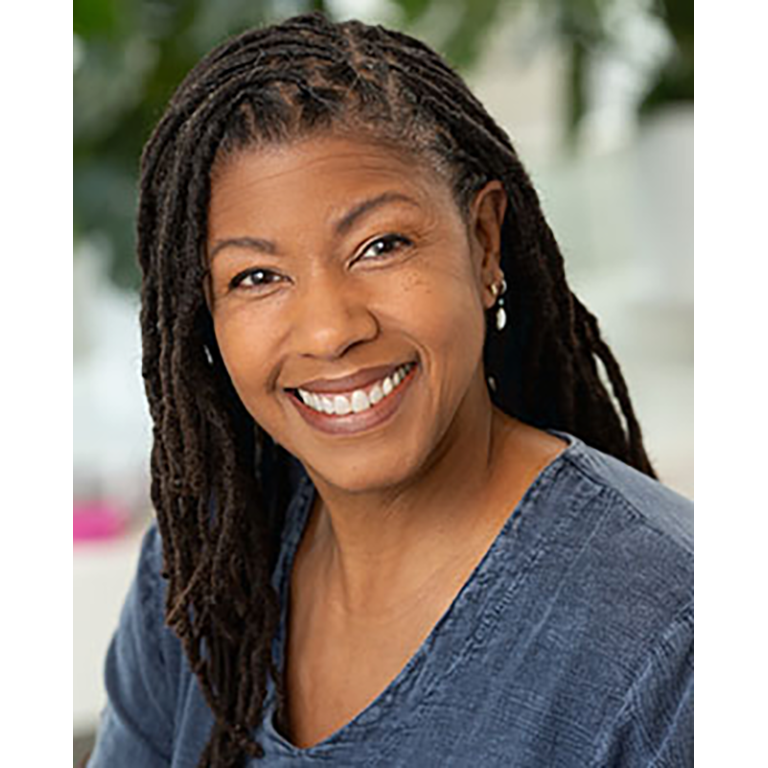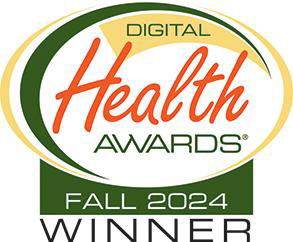For more than 15 years, breast cancer scientists around the world have been searching for a cure using normal tissue samples supplied by the Komen Tissue Bank at the IU Simon Comprehensive Cancer Center. Our research collaborators include federal agencies, prestigious universities, pharmaceutical companies, and renowned non-profit organizations.
These lay summaries of published research using KTB samples were produced by Gena Asher, a KTB consumer advocate.
Quick facts about recent research
Spatial N-glycomics of the normal breast microenvironment reveals fucosylated and high-mannose N-glycan signatures related to BI-RADS density and ancestry.
Rujchanarong D, Spruill L, et al. Glycobiology 2024 Jun; 34(8) .The breast stroma is the tissue that surrounds and supports the parts of the breast that make milk—it includes things like fat, blood vessel...
Investigating phenotypic plasticity due to toxicants with exposure disparities in primary human breast cells .
Schroeder J, Polemi KM, et al. Frontiers in oncology 2024 Jun; 14 .Breast cancer is one of the most common cancers in the world, and some aggressive types—like triple-negative breast cancer (TNBC)—affect B...
A Novel Qualitative Approach for Identifying Effective Communication for Recruitment of Minority Women to a Breast Cancer Prevention Study
Ridley-Merriweather KE, Head KJ, et al. Contemporary clinical trials communications 2022 Jun; 27 . The Komen Tissue Bank is the only biobank in the world that collects healthy breast tissue to be used as normal controls in breast cancer re...
Racial Differences in Cumulative Disadvantage Among Women and Its Relation to Health: Development and Preliminary Validation of the Cumulative Stress Inventory of Women's Experiences.
Latham-Mintus K, Weathers TD, et al. Health equity 2022; 6(1) .Black women in the United States experience worse health outcomes than White women, including higher rates of chronic illness and poorer self-rated he...
Inflammation markers on benign breast biopsy are associated with risk of invasive breast cancer in African American women.
Shaik AN, Kiavash K, et al. Breast cancer research and treatment 2021 Feb; 185(3) . Over the last decade, breast cancer rates have risen for African American women, who suffer a 40 percent higher breast cancer mortality than...
Estimating breast tissue-specific DNA methylation age using next-generation sequencing data.
Castle JR, Lin N, et al. Clinical epigenetics 2020 Mar; 12(1) . Increasing age is one risk factor for developing breast cancer. Your chronological age is one factor, but researchers also are looking at bi...
Upregulation of lipid metabolism genes in the breast prior to cancer diagnosis.
Marino N, German R, et al. NPJ breast cancer 2020; 6 . For years, researchers have been looking for signs of changes in the breast that may lead to the formation of cancer cells as keys to earlie...
Genetic Ancestry-dependent Differences in Breast Cancer-induced Field Defects in the Tumor-adjacent Normal Breast.
Nakshatri H, Kumar B, et al. Clinical cancer research : an official journa 2019 May; 25(9) . Scientists know that genetic ancestry affects how cancer develops. For example, women of African American ancestry suffer higher mortality f...
Increased epigenetic age in normal breast tissue from luminal breast cancer patients.
Hofstatter EW, Horvath S, et al. Clinical epigenetics 2018 Aug; 10(1) . Increasing age is one risk factor for developing breast cancer. Your chronological age is one factor, but researchers also are looking at bi...
Serum insulin-like growth factor (IGF)-I and IGF binding protein-3 in relation to terminal duct lobular unit involution of the normal breast in Caucasian and African American women: The Susan G. Komen Tissue Bank.
Oh H, Pfeiffer RM, et al. International journal of cancer 2018 Aug; 143(3) . Scientists have long studied how proteins affect activity in cells, some of which may lead to the formation of breast cancer. As they seek t...
Triple-Negative Breast Cancer, Stem Cells, and African Ancestry.
Jiagge E, Chitale D, et al. The American journal of pathology 2018 Feb; 188(2) . In many respects, women of African ancestry fare worse than other populations when diagnosed with breast cancer. For example, mortality rate...
Inflammatory signatures distinguish metabolic health in African American women with obesity.
Denis GV, Sebastiani P, et al. PloS one 2018; 13(5) . Among all U.S. racial and ethnic categories, elevated body mass index is a leading cause of preventable death, a major risk factor for cardi...
African American Women's Perspectives on Donating Healthy Breast Tissue for Research: Implications for Recruitment.
Ridley-Merriweather KE, Head KJ, et al. Health communication 2017 Dec; 32(12) . African American women die of breast cancer at a higher rather than any other racial group, and they are more likely to develop triple-negat...
Relationships Among Obesity, Type 2 Diabetes, and Plasma Cytokines in African American Women.
Denis GV, Sebastiani P, et al. Obesity (Silver Spring, Md.) 2017 Nov; 25(11) . African American women have higher risk of poor-prognosis triple negative breast cancer and breast cancer mortality than white women, and sc...
Alterations in the Immune Cell Composition in Premalignant Breast Tissue that Precede Breast Cancer Development.
Degnim AC, Hoskin TL, et al. Clinical cancer research : an official journa 2017 Jul; 23(14) . The normal mammary gland contains a mucosal (moist) immune system, as do other organs such as the lung and gastrointestinal tract. In the ma...
DNA methylation age is elevated in breast tissue of healthy women.
Sehl ME, Henry JE, et al. Breast cancer research and treatment 2017 Jul; 164(1) . Did you know that various parts of your body may age at different rates? Researchers want to better understand the aging of breast tissue as...
Dual PI3K and Wnt pathway inhibition is a synergistic combination against triple negative breast cancer.
Solzak JP, Atale RV, et al. NPJ breast cancer 2017; 3 . "Triple negative breast cancer" accounts for 15 to 20 percent of breast cancers. Triple negative means the tumor is not positive for estroge...
Ethnicity-Dependent and -Independent Heterogeneity in Healthy Normal Breast Hierarchy Impacts Tumor Characterization.
Nakshatri H, Anjanappa M, et al. Scientific reports 2015 Aug; 5 . Ethnicity and genetics are partly responsible for "heterogeneity", or the genetic differences from one area of tissue to another. These diff...
Motivations, concerns, and experiences of women who donate normal breast tissue.
Doherty EF, MacGeorge EL, et al. Cancer epidemiology, biomarkers & prevention 2015 Jan; 24(1) . Since its launch in 2007, the Komen Tissue Bank has staged numerous donation events that have resulted in more than 4,900 women donating sam...
Circulating sex hormones and terminal duct lobular unit involution of the normal breast.
Khodr ZG, Sherman ME, et al. Cancer epidemiology, biomarkers & prevention 2014 Dec; 23(12) . One of the primary sources of breast cancer is "terminal duct lobular unit involution". Involution is when mammary glands remove the milk-pr...
Terminal duct lobular unit involution of the normal breast: implications for breast cancer etiology.
Figueroa JD, Pfeiffer RM, et al. Journal of the National Cancer Institute 2014 Oct; 106(10) . The human breast constantly is changing, from puberty to child-bearing to menopause to post-menopausal years. How well our bodies accomplish...
Phenotypic plasticity in normal breast derived epithelial cells.
Sauder CA, Koziel JE, et al. BMC cell biology 2014 Jun; 15 . Within the normal human breast are epithelial cells (cells that line the ducts), which sometimes have "phenotype plasticity", that is, the a...
Postpartum breast involution reveals regression of secretory lobules mediated by tissue-remodeling.
Jindal S, Gao D, et al. Breast cancer research : BCR 2014 Mar; 16(2) . Scientists have long been interested in the changes in the breast during pregnancy, breast feeding and weaning, and how these affect breast ...
Characterizing the heterogeneity of triple-negative breast cancers using microdissected normal ductal epithelium and RNA-sequencing.
Radovich M, Clare SE, et al. Breast cancer research and treatment 2014 Jan; 143(1) . Triple-negative breast cancer is defined by its properties that do not respond to traditional therapies: It is not estrogen or progesterone ...
Telomere fusions in early human breast carcinoma.
Tanaka H, Abe S, et al. Proceedings of the National Academy of Scienc 2012 Aug; 109(35) . Scientists have been examining telomeres as a way to see how cancer starts. Telomeres are part of DNA that protect the ends of chromosomes f...
Histologic findings in normal breast tissues: comparison to reduction mammaplasty and benign breast disease tissues.
Degnim AC, Visscher DW, et al. Breast cancer research and treatment 2012 May; 133(1) . Before the Susan G. Komen Tissue Bank began collecting "normal" tissue from donors, researchers relied on tissue from a few sources to inves...

Meet the Researcher: Kathi Ridley-Merriweather
Dr. Ridley-Merriweather is the KTB’s communication and minority recruitment manager and holds a doctorate in health communication from IU Indianapolis. Her research focuses on recruitment and inclusion of Black and Brown individuals into breast cancer clinical trials.
I am the fiancé to a very smart, educated, and beautiful woman who has educated herself on why it's important for women of our culture (African-American) to donate. I love her, so I am here to support her and let her know I am proud of her.
Anonymous — Tissue Donor
About the Susan G. Komen Tissue Bank
The Komen Tissue Bank is the only repository in the world for normal breast tissue and matched serum, plasma, and DNA. We are transforming breast cancer research by offering normal, high-quality, richly annotated tissue samples to scientists worldwide.

This Komen Tissue Bank website earned a bronze award in the responsive website design category in the 2024 Digital Health Awards competition.




